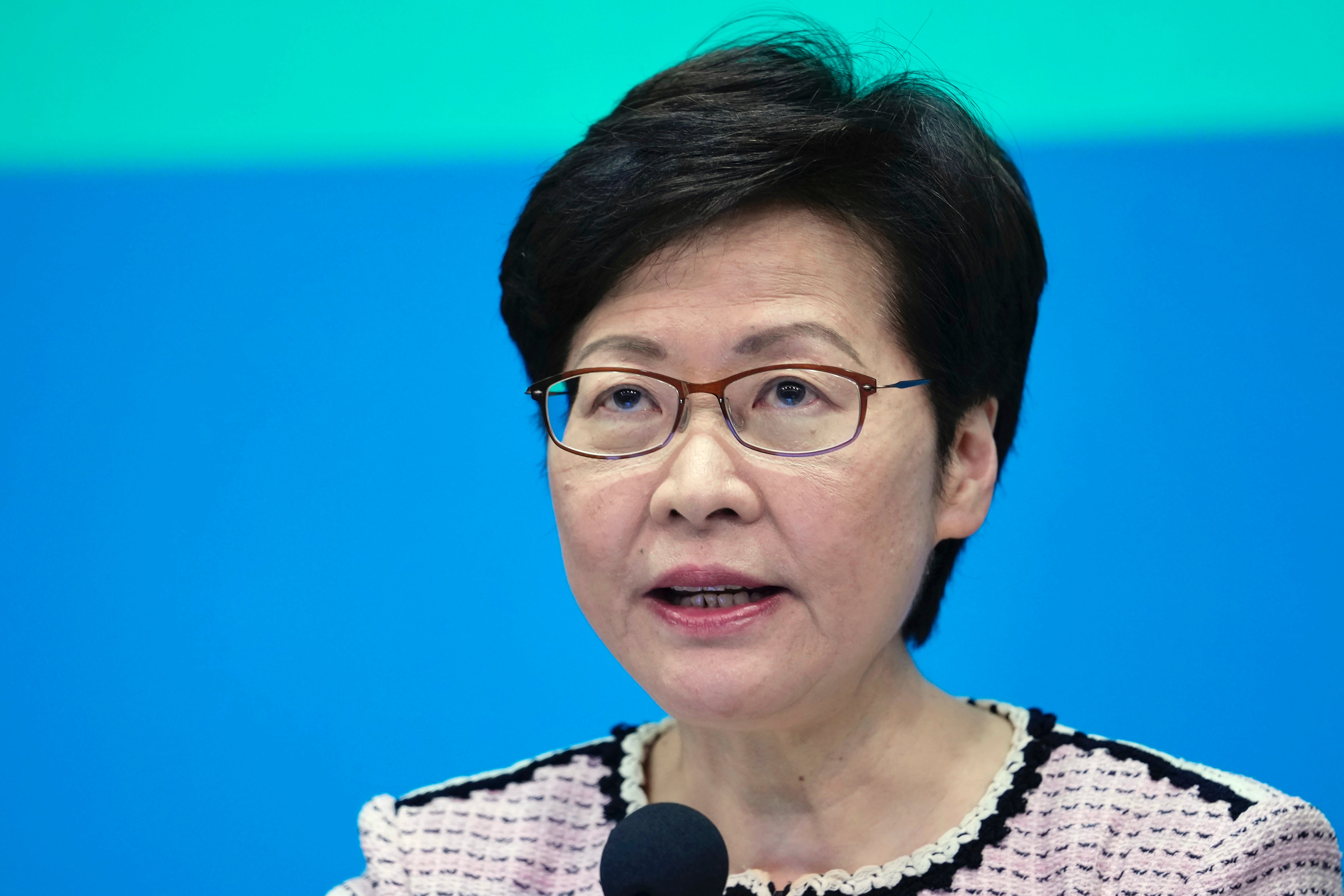Hong Kong leader backs retaliatory sanctions against US and other Western nations
Carrie Lam says she supports implementation of a Chinese anti-sanctions law in Hong Kong

Hong Kong leader Carrie Lam, just a year after she was slapped with sanctions from the United States and other western countries, said on Tuesday she supported the implementation of a Chinese law that allows for retaliatory measures.
China adopted an anti-sanctions law in June, allowing individuals or entities that make or implement any discriminatory measures against its citizens to be put under an anti-sanctions list.
The country can deny entry to individuals under this list, seize or freeze their assets and deny them from conducting any business with entities or people in China.
Ms Lam, who is Hong Kong’s chief executive, said she preferred the implementation to be adopted through local legislation rather than be imposed by Beijing. This can be done by adding it to an annex of Hong Kong’s mini constitution that is known as the Basic Law.
“There are external forces, or foreign governments or western media, which would make use of the opportunity to weaken our international financial center status as well as a weakening confidence in Hong Kong,” Ms Lam was quoted as saying by the Associated Press (AP).
In August last year, the US put sanctions against Ms Lam and 10 other officials, after Washington accused them of stifling democratic freedoms in the city.
As a result, she said she was forced to keep “piles of cash” at home, according to a report by The Guardian. She said she was paid her salary by the Chinese government in cash and had no bank accounts.
The US sanctions meant Ms Lam and the other officials were barred from conducting business with America and any US assets they had were frozen.
The sanctions came after Beijing implemented a national security law on Hong Kong last year. Critics allege the national security law has been used to stifle dissent in the former British colony, that was returned to Chinese sovereignty in 1997 after guarantees for greater degrees of autonomy and freedom.
Critics also claim the implementation of the Chinese anti-sanctions law by Hong Kong will greatly undermine the city’s reputation as a global financial centre.
Hong Kong’s largest teachers’ union on Tuesday said it would disband as a result of the social and political situation in the city becoming “drastic”.
The opposition-leaning Hong Kong Professional Teachers’ Union was attacked by the Chinese state-run media and the city’s Education Bureau cut ties with it.
The media and the bureau have accused the union of bringing politics into education and said the union’s remarks encouraged students to take part in “unlawful activities”.
State-run Xinhua news agency and the People’s Daily condemned the union – formed 50 years ago and staffed by 200 people – as a “poisonous tumour” in June.
Students have formed a considerable chunk of anti-government protests that had engulfed Hong Kong in 2019.
Fung Wai-wah, president of the Hong Kong Professional Teachers’ Union, said the social and political situation in Hong Kong had become “drastic” and the union struggled to find a solution.
“It’s a difficult decision, a helpless decision, and a heart-wrenching decision,” Fung said.
Join our commenting forum
Join thought-provoking conversations, follow other Independent readers and see their replies
Comments
Bookmark popover
Removed from bookmarks